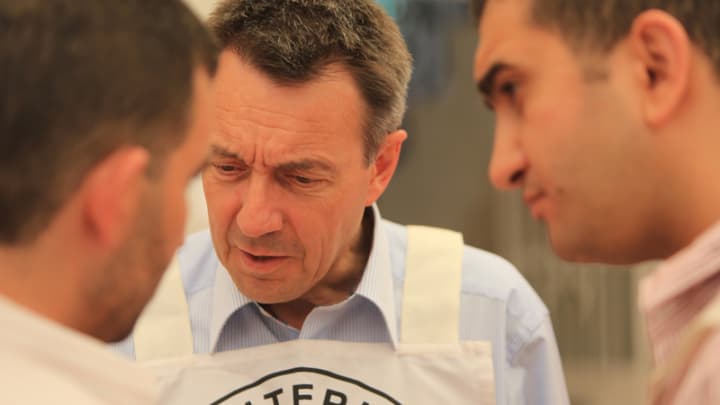
NEW YORK — World leaders gathering at this week’s United Nations General Assembly need to step up and find solutions to conflicts and force parties in conflict to respect international humanitarian law, the president of one of the largest humanitarian organizations told Devex.
“I hope that the [secretary general’s] agenda on prevention, on conflict resolution, will get a boost this week and that world leaders also start to act responsibly in moving their divergent interests together and finding political solutions,” Peter Maurer, the president of the International Committee of the Red Cross, said in an interview. “As a humanitarian organization, I really also would wish states to become more forceful and supportive of international humanitarian law.”
Refugee advocates at UNGA attack 'unscrupulous politicians' for stoking fears
Global officials working on the refugee crisis called out leaders for using negative politicking, saying that a reframing of the issue is vital to addressing humanitarian concerns.
This challenge of operating in contexts where the warring parties don’t respect humanitarian law is one of the most serious problems organizations such as ICRC are facing, he added. The world’s long-running conflicts — including in Iraq, Afghanistan, South Sudan, and Somalia — have been joined by devastating new crises, such as the brutal Syrian civil war, the crisis in Yemen, and societal breakdowns in places such as northern Nigeria and Venezuela.
“What we see is a period of transactionalism and exceptionalism. Parties to conflict are only ready to respect international humanitarian law if the other side does it, and they get into a negative spiral on that or they consider themselves above the law,” he said. “Unless these behaviors changes, we can throw assistance, money, solutions to problems, it won’t do the trick.”
Engaging more forcefully may push parties to change their behavior and respect the rules, Maurer said.
This is also a moment where a lot of the organizations and agencies focused on humanitarian response will be taking stock of some of the goals and commitments made as part of the Grand Bargain at the World Humanitarian Summit in May 2016.
While some progress has been made in some areas, there are still many obstacles to address, Mauer explained.
“We've fallen short on non-earmarking; we still are modest on multi-year engagement; we are still too bureaucratic in reporting requirements; we are still too difficult in really collaborating, cooperating with each other,” Maurer said, adding that he hopes that there is an honest conversation this week, so that existing roadblocks can be identified and addressed.
Devex is on the ground in New York at Global Goals Week, bringing you daily morning briefings with everything you need to know — whether you're here in person or following the events from afar. Sign up for our daily briefings.




